The Importance of Washers in Fastening Systems
5778 Views |

What is a Washer?
A washer is a thin, flat disk with a centered hole, commonly used in the industrial sector. For those who are unfamiliar with this word, a washer might remind us of a washing machine or some cleaning activity. I remember when I first heard the word “washer” I thought the same, and it turns out many of our new colleagues did too. This brings back memories of my early days in the fasteners industry.
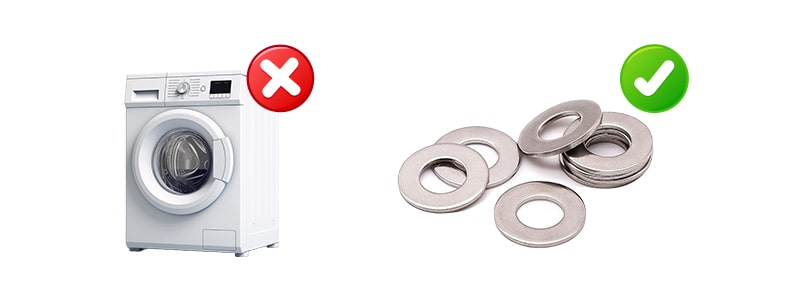
What is a Washer in the Fasteners Business?
In the fasteners business, washer is a flat, thin, round disk with a centered hole. It is placed between a bolt or screw and the material being fastened. Washers are typically made of metal or plastic and come in various shapes and sizes. Generally, washers are produced through a process called pressing, where a rolled steel plate is cut and punched into the desired washer shape. This is one of the most popular production methods.
Functions of a Washer
A washer is inserted into a bolt or screw and fastened to the desired surface. It increases the bearing surface area and distributes the load of the fastener, reducing stress concentration at one point and preventing damage to the material being fastened.
One common cause of fasteners loosening is the bearing surface sinking from fastening pressure, especially if the contact surface is small, such as with a socket cap screw fastening to a slot or soft material like aluminum or resin. Using a washer can greatly prevent the bolt or screw from sinking into the part or material, enhancing the overall performance of the fastening system.
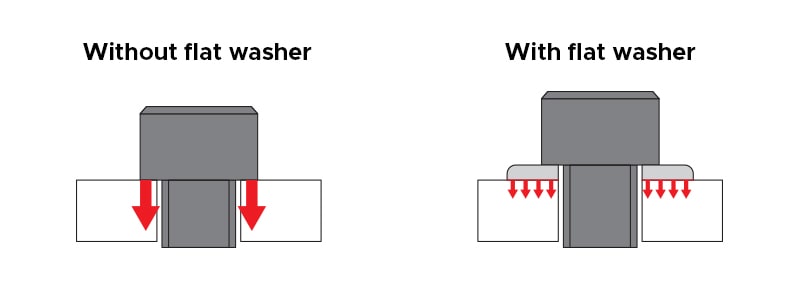
Manufacturing Process of Washers
Washers are typically manufactured through pressing, resulting in one side having rounded corners and the other side having burrs. You might wonder which side should face the material surface. There is no fixed rule, but here are some considerations: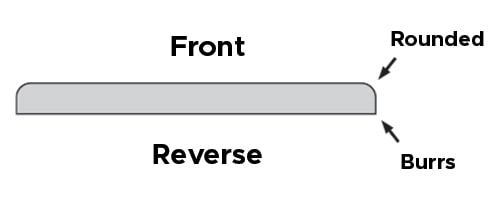
1. Rounded side up and burrs side facing the material surface: This provides more effective bearing surface pressure.
2. Burrs side up and rounded side facing the material surface: Burrs can mark the surface when fastening, potentially peeling off the plating such as Zinc or Nickel. If this is a concern, place the rounded side down is a good option.
Standards and Availability
Round washers are available in several standards, such as JIS B-1256, ISO 7089, DIN 125, and ASME B18.22.1. The manufacturing process for round washers is simpler compared to other fasteners, resulting in a wide range of dimensions available in the market, even variations as small as 0.1mm thicker or 1mm wider, to meet various application needs.
Small outer diameter washer for socket cap screw and thick washer for high-tension bolt also available.
Tips: Plastic washers can provide incredible mechanical functions for fastening solutions, such as electrical or thermal insulation barriers and excellent chemical resistance, especially for materials like PEEK.
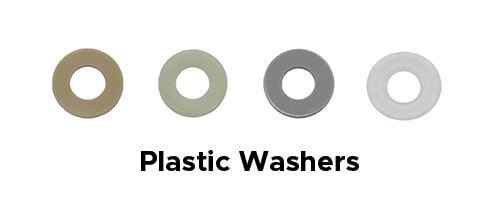
Conclusion
There are hundreds of types of washers available today, designed for specific industrial applications. From basic round washers to advanced technology anti-loose washers like Nord-Lock Washers, washers play a crucial role in enhancing the efficiency of fastening systems.
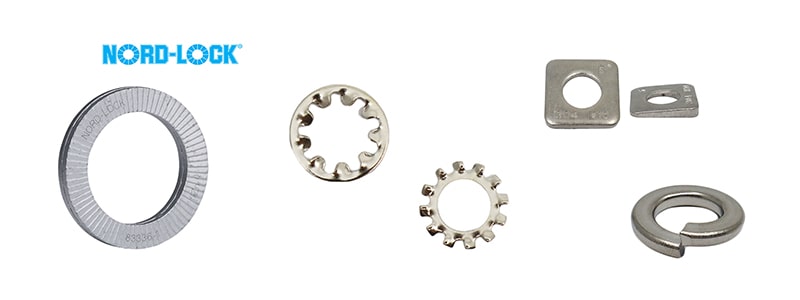
We hope you found this information about washers useful. Although washers may seem like small part that seem to be ignored, but they are significantly increasing the efficiency of fastening systems.
A Fun Fact About Washers
Depending on the context, the word “Washer” can mean different things! If you’re in an appliance store or at home, mentioning a “Washer” will likely get you a washing machine.
However, if you’re in a factory or any industrial area, a “Washer” refers to the small but incredible component in the fasteners category like what we are talking about in this blog.

Just a little joke to summarize this thing! Please keep in touch with us for upcoming interesting blog!
Written by
Mr.Nuttapol Sirilert
International Sales Dept.
Hanshin Neji Co.,Ltd.



